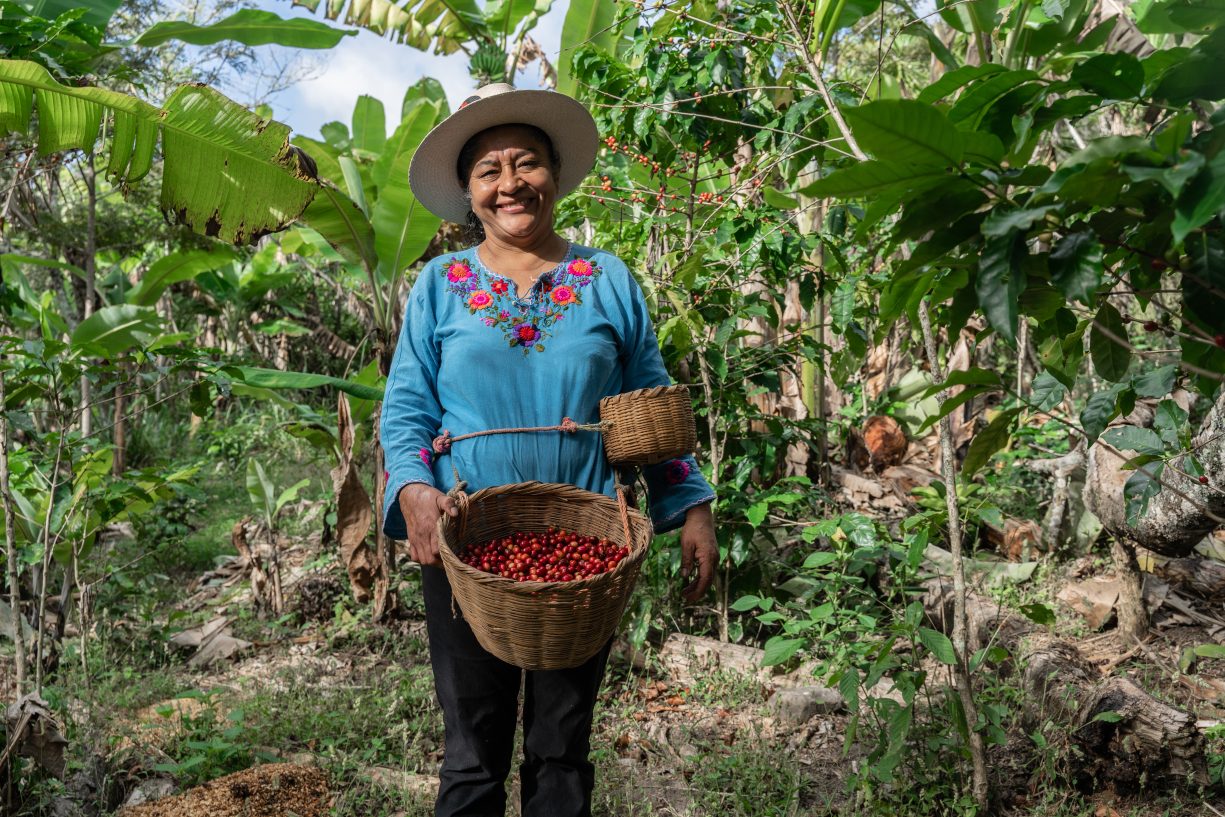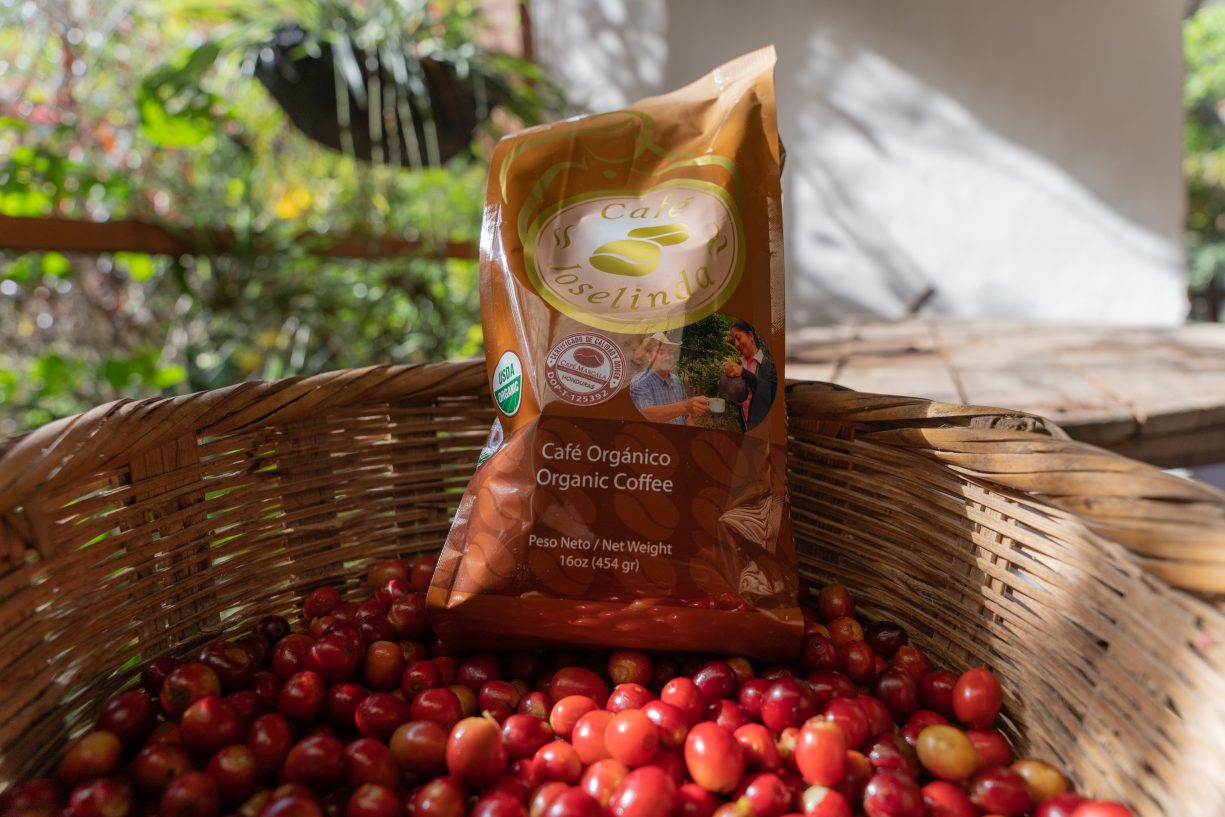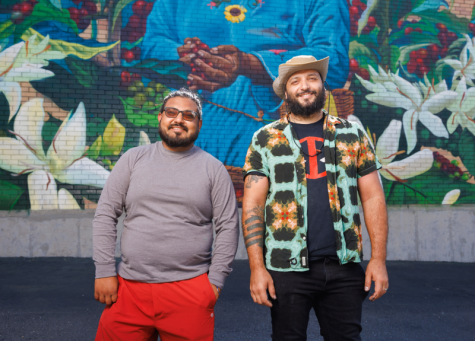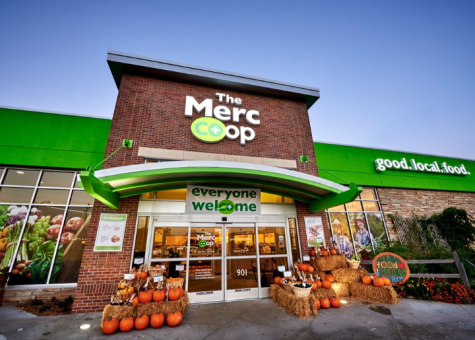Joselinda Manueles
Joselinda Manueles 
“I believe that I will never die because when I am no longer physically here, my life will continue through the more than 2,000 trees that I planted… My farm was a desert when I arrived and look how it is now.”
Did you know that coffee cherries are the fruit that holds the seed that gets roasted and ground to become 1.6 billion cups of coffee every day?
COMSA, a coffee cooperative committed to the next generation
Joselinda and her husband, Enrique Mario Pérez, were founding members of Café Orgánico Marcala S. A. de C. V. (COMSA). When the co-op began there were 60 members. There are now more than 1,100, 27% of whom are women. Gender equity has been a long-standing priority of the co-op, and COMSA’s Gender Committees provide training and collaboration opportunities for women farmers throughout Honduras. Closer to home, Joselinda and Enrique made a decision early on that she would farm her own section of the land. This has meant autonomy to cultivate coffee in ways that she deems best. For example, her Café Joselinda is grown organically.

Organic practices help build and maintain soil health. And soil health is foundational to climate resilience. As humidity increases—one of the ways that climate change is manifesting in Marcala—farmers are more and more concerned about fungal diseases like coffee rust. Coffee rust causes the leaves of the coffee tree to fall off earlier in the season than they should. This diminishes the following year’s harvest and weakens the tree. Especially within the context of inflation, coffee farmers are already working with precarious margins, so coffee rust–and its increasing prevalence–are a real concern to individual farmers. But Fairtrade farmers don’t go it alone. When members of a cooperative come together, they can scale-up solutions to pressing concerns by sharing information and coordinating resources.
COMSA supports its members—and the wider community—in a variety of environmental initiatives. Recognizing that waste management had become a problem in Marcala, the cooperative decided to address it by creating La Fortaleza, a recycling processing plant. They turn organic waste—from city streets, markets, businesses and households—into compost that fertilizes COMSA farms. Additionally, COMSA offers a diploma program in organic farming that has attracted participants from the community, Honduras and beyond. They also offer educational opportunities for the community’s youngest members. With tuition fees heavily subsidized by the Fairtrade Premium, the COMSA International School welcomes students from six months to 18 years old. The school boasts a high teacher to student ratio, and it weaves play and creative exploration into a rigorous curriculum that includes all students studying English, French, German and Japanese. COMSA’s wide variety of programs make one thing clear: the co-op is a leader for both people and the planet.
“By buying Fairtrade coffee with the FLO award, consumers support the producer and the community, because that money comes back to us, and we, the members, decide in an assembly where the resources will be invested. That is why we have supported the investment in the COMSA International School, where children from the community, including my two grandchildren, are studying.”
Joselinda’s leadership at COMSA and her commitment to environmental stewardship have us glowing with gratitude. That’s why we’re collaborating with artists Isaac Tapia and Rodrigo Alvarez to feature her on a mural located at The Merc Co+op in Lawrence, Kansas —where you can also find Fairtrade certified Kicking Horse Coffee, a brand that sources from COMSA coffee cooperative.
Isaac Tapia and Rodrigo Alvarez


All Fairtrade. Good. Coffee. Kicking Horse Coffee only uses coffee that is certified and fair. Fairtrade invests profit towards empowering farmers and their futures. It’s good for farmers. Good for the earth. Good for community. And delicious goodness in the cup!
The Merc Co+op in Lawrence, KS

Photo credit: Chris Mullins


